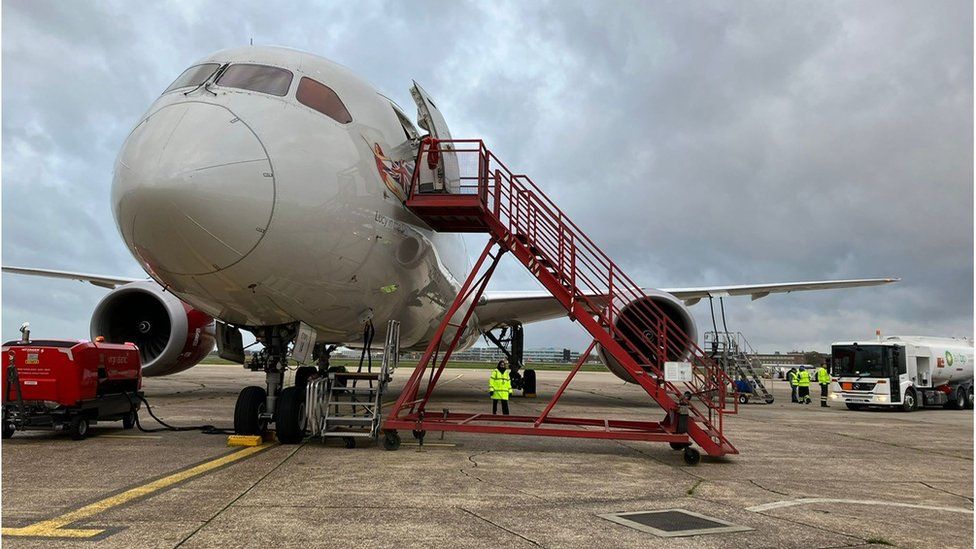-

-
-
Loading

Loading

Virgin Atlantic is set to launch the first transatlantic flight powered solely by sustainable fuels, in a bid to showcase the potential of greener aviation. Supported by government funding, the flight will depart from London's Heathrow airport, bound for New York's JFK airport. The use of sustainable aviation fuels (SAF) is considered a significant step towards reducing emissions in the aviation industry. The flight will utilize two types of SAF, with 88% derived from waste fats and the remaining portion from corn production waste in the US. While SAF is already used in small amounts globally, it accounts for less than 0.1% of total aviation fuel consumption. The aviation industry views SAF as the most effective means to achieve zero net emissions, despite the fact that planes still emit carbon when using these fuels. One of the challenges lies in the limited supply and higher cost of SAF compared to conventional jet fuel, as well as the need for further technological advancements to meet emissions targets. Experts emphasize that while SAF is a step in the right direction, more emphasis should be placed on developing future net-zero technologies, such as e-fuels, hydrogen, or lab-stage technologies. The UK government aims to have five dedicated commercial SAF plants under construction by 2025. By 2030, it plans to require 10% of aviation fuel to be SAF. However, environmental campaigners argue that cutting emissions requires reducing the number of flights, while ministers and the aviation industry remain confident that achieving "net zero" by 2050 is possible while passenger numbers continue to rise.